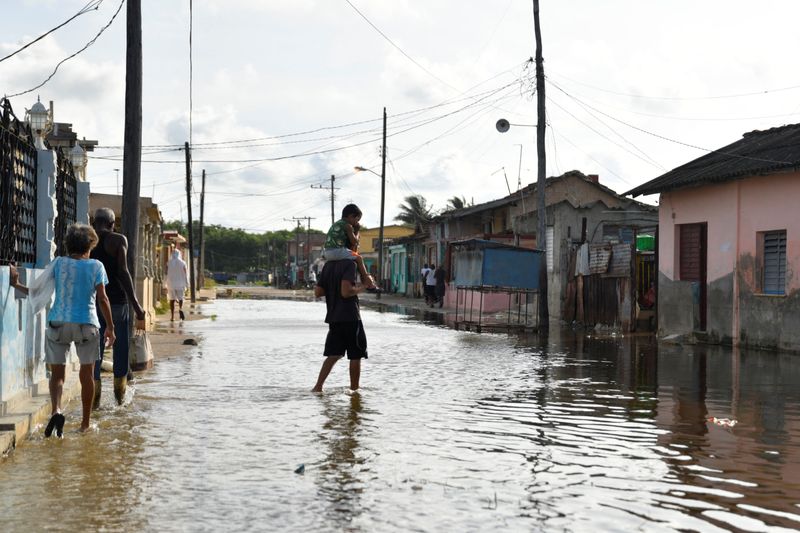LONDON (Reuters) – Hurricane Milton could result in a $60 billion loss for the global insurance industry, creating a surge in 2025 reinsurance prices which could boost some insurance companies’ shares, analysts at RBC Capital said. The Category 5 hurricane is due to make landfall on the Gulf Coast of Florida late on Wednesday or early Thursday, and is potentially one of the most destructive ever to hit the region, which is still recovering from devastation caused by Hurricane Helene less than two weeks ago.
More than one million people in coastal areas are under evacuation orders.
A $60 billion loss would be similar to losses from Hurricane Ian, which hit Florida in 2022, the RBC analysts said on Wednesday, adding that this estimate for Milton should be “very manageable” for the insurance sector.
“Market seems to be pricing in a similar impact from Hurricane Ian of a $60bn industry loss in 2022,” RBC analysts said.
Ian was the second largest insured loss from a hurricane, following Hurricane Katrina in 2005, according to the Swiss Re (OTC:) Institute, which provides research on insurance.
Insurers and reinsurers – who insure the insurers – have responded to rising losses from natural catastrophes in the past few years by raising rates and excluding higher-risk business.
“Better reinsurance contract terms, broader earnings diversification and bigger reserve buffers should put the sector in better stead than before,” the RBC analysts said in a note.
Barclays analysts this week estimated insured losses from the hurricane could exceed $50 billion.
Shares in global reinsurers Swiss Re and Munich Re and in Lloyd’s of London players Beazley, Hiscox and Lancashire have fallen this week. Swiss Re, Munich Re and Beazley have been trading at record highs on the back of strong profits.
“It’s only a matter of time before shares regain lost ground as prospects of harder pricing at the subsequent (policy) renewals set in,” RBC added.
Reinsurers fix prices for many insurance contracts on Jan 1.

Analysts at Peel Hunt said on Wednesday that a major hurricane making landfall across Tampa Bay and travelling west across the Florida Peninsula would be similar to a realistic disaster scenario set out by Lloyd’s earlier this year, which projected a $134 billion loss for the insurance sector.
Lloyd’s maintains a set of mandatory Realistic Disaster Scenarios to stress test both individual syndicates and the market as a whole. The event scenarios are regularly reviewed to ensure they represent material catastrophe risks.

